
Asmara - The Jewel of Africa's Art Deco Heritage
Asmara, the capital city of Eritrea, is a unique blend of African charm and Italian elegance. Often referred to as 'Little Rome,' this city boasts an incredible array of well-preserved Art Deco buildings, a legacy of its Italian colonial past. Wander through the streets of Asmara, and you'll feel like you've stepped back in time, with its pastel-colored buildings, vintage cinemas, and retro cafes. One of the highlights of Asmara is its vibrant street life. The city's main boulevard, Harnet Avenue, is lined with palm trees and bustling with activity. Here, you can enjoy a cappuccino at a sidewalk cafe, browse through local shops, or simply people-watch as the city's residents go about their day. Asmara's markets are also a must-visit, offering a colorful array of local goods, from fresh produce to handmade crafts. Asmara's rich history is also reflected in its diverse cultural attractions. Visit the National Museum of Eritrea to learn about the region's ancient history and cultural heritage. Don't miss the beautiful Enda Mariam Orthodox Cathedral, a stunning example of Eritrean religious architecture. For a taste of local life, take a stroll through the city's neighborhoods, where you'll find a mix of colonial-era villas and traditional Eritrean homes. Nature lovers will also find plenty to enjoy in and around Asmara. The city is surrounded by lush hills and valleys, perfect for hiking and exploring. Just a short drive away, you'll find the picturesque village of Filfil, known for its beautiful landscapes and friendly locals. Whether you're a history buff, a culture enthusiast, or simply looking for a unique travel experience, Asmara has something to offer everyone.
Local tips in Asmara
- Visit the markets early in the morning to avoid the crowds and get the freshest produce.
- Dress modestly, especially when visiting religious sites, to show respect for local customs.
- Try the local coffee, which is often served with popcorn – a unique Eritrean tradition.
- Learn a few phrases in Tigrinya, the local language, to connect better with the locals.
- Carry small denominations of cash, as many small shops and markets do not accept cards.
- Take a guided city tour to understand the historical significance of Asmara's architecture.
Asmara - The Jewel of Africa's Art Deco Heritage
Asmara, the capital city of Eritrea, is a unique blend of African charm and Italian elegance. Often referred to as 'Little Rome,' this city boasts an incredible array of well-preserved Art Deco buildings, a legacy of its Italian colonial past. Wander through the streets of Asmara, and you'll feel like you've stepped back in time, with its pastel-colored buildings, vintage cinemas, and retro cafes. One of the highlights of Asmara is its vibrant street life. The city's main boulevard, Harnet Avenue, is lined with palm trees and bustling with activity. Here, you can enjoy a cappuccino at a sidewalk cafe, browse through local shops, or simply people-watch as the city's residents go about their day. Asmara's markets are also a must-visit, offering a colorful array of local goods, from fresh produce to handmade crafts. Asmara's rich history is also reflected in its diverse cultural attractions. Visit the National Museum of Eritrea to learn about the region's ancient history and cultural heritage. Don't miss the beautiful Enda Mariam Orthodox Cathedral, a stunning example of Eritrean religious architecture. For a taste of local life, take a stroll through the city's neighborhoods, where you'll find a mix of colonial-era villas and traditional Eritrean homes. Nature lovers will also find plenty to enjoy in and around Asmara. The city is surrounded by lush hills and valleys, perfect for hiking and exploring. Just a short drive away, you'll find the picturesque village of Filfil, known for its beautiful landscapes and friendly locals. Whether you're a history buff, a culture enthusiast, or simply looking for a unique travel experience, Asmara has something to offer everyone.
When is the best time to go to Asmara?
Iconic landmarks you can’t miss
Asmara Palace Hotel
Discover the elegance of Asmara Palace Hotel, where luxury meets tradition in the heart of Eritrea's capital.
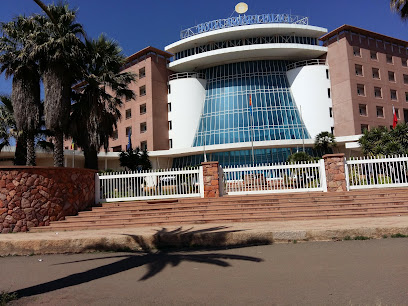
Fiat Tagliero ፡ፍያት ታሌሮ
Discover the architectural marvel of Fiat Tagliero, a historic landmark in Asmara, Eritrea, showcasing modernist design and cultural significance.

ኣስመራ ካቴድራል | Cathedral Our Lady of the Rosary
Explore the architectural beauty and serene atmosphere of the Cathedral Our Lady of the Rosary, a cultural gem in Asmara, Eritrea.

Khulafa al-Rashidun Mosque - ጃምዕ ኹለፋእ ኣልራሺዲን
Explore the serene beauty and architectural splendor of Khulafa al-Rashidun Mosque in Asmara, a symbol of Eritrea's rich Islamic heritage.

ሲነማ ኢምፔሮ | Cinema Impero
Experience the charm of Cinema Impero in Asmara, a beautifully preserved Art Deco movie theater that showcases Eritrea's vibrant film culture.
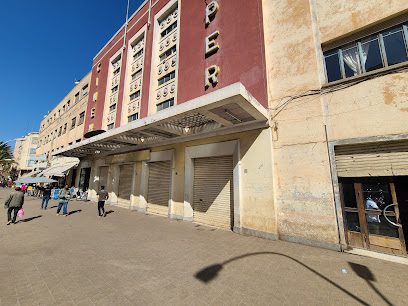
Asmara International Airport
Discover Eritrea's unique charm and stunning landscapes through Asmara International Airport, your gateway to an unforgettable adventure.
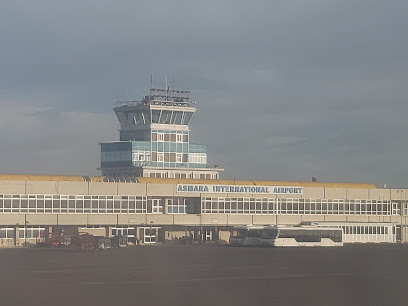
National Museum of Eritrea
Uncover Eritrea's history at the National Museum, a cultural gem in Asmara showcasing diverse artifacts and contemporary art.

Asmera
Experience the vibrant culture and stunning architecture of Asmara's historic train station, a must-visit for every traveler in Eritrea.
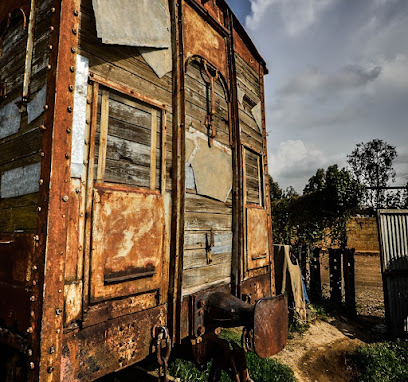
Eritrea Visit
Explore Eritrea's hidden treasures with Eritrea Visit, your trusted travel partner in Asmara for unforgettable journeys.

Mai jah jah
Explore Mai jah jah, a serene promenade in Asmara, Eritrea, where tranquility meets vibrant local culture and breathtaking views.

Bar Zilli
Discover the rich flavors of Eritrea and Italy at Bar Zilli, a must-visit grill and bar in the heart of Asmara, perfect for food lovers and tourists.
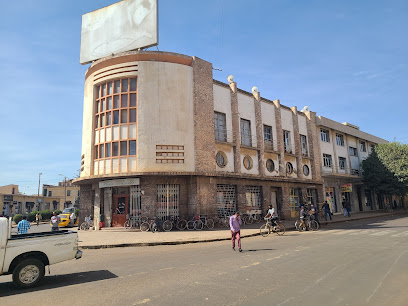
Asmara Synagogue
Discover the rich heritage of Eritrea at Asmara Synagogue, a serene sanctuary blending history with community spirit in the heart of Asmara.
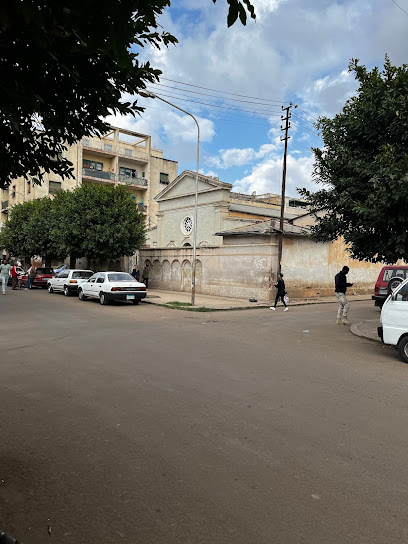
Tank Graveyard
Explore the Tank Graveyard in Asmara, Eritrea—a haunting site of historical military tanks surrounded by breathtaking landscapes.

Adulis Travel
Explore Eritrea's breathtaking landscapes and rich culture with Adulis Travel for an unforgettable adventure.

Kidane Mihret Catholic Church
Explore the architectural beauty and spiritual tranquility of Kidane Mihret Catholic Church in Asmara, a must-visit landmark for all travelers.
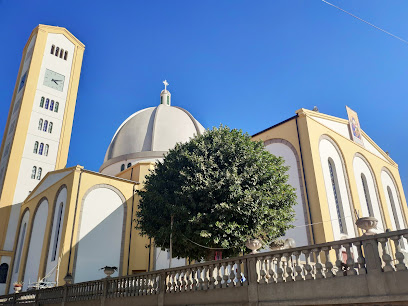
Unmissable attractions to see
ሲቲ ፓርክ | City Park
Explore the beauty and tranquility of City Park in Asmara, a perfect getaway for relaxation and cultural immersion amidst lush greenery.
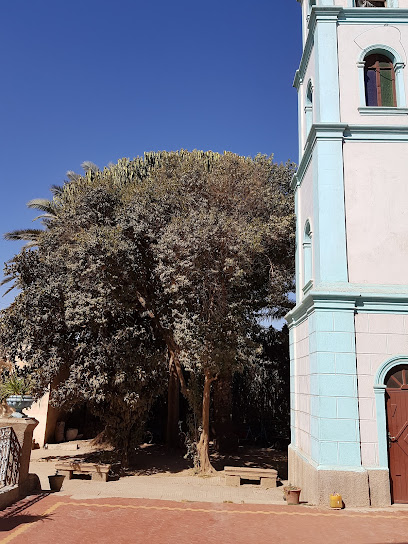
Tank Graveyard
Explore the haunting Tank Graveyard in Asmara, Eritrea, a powerful symbol of resilience and a poignant reminder of the nation's tumultuous past.

Parc Asmera
Explore the serene beauty of Parc Asmera, a lush city park in Asmara, Eritrea, perfect for relaxation and cultural immersion.
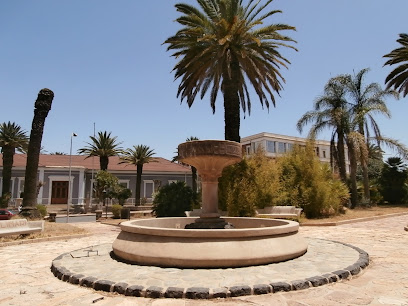
City Center Park
Discover the serene beauty of City Center Park in Asmara, Eritrea, a peaceful oasis perfect for relaxation and nature lovers amidst urban life.
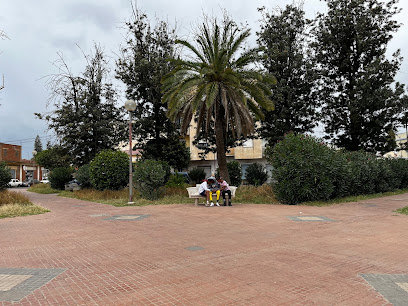
Laghetto
Experience the tranquility of Laghetto Park in Asmara - a beautiful retreat surrounded by lush greenery and serene landscapes.

Makalayis Park
Discover the tranquility of Makalayis Park in Asmara, a city park that offers lush landscapes, relaxation, and a glimpse into local culture.
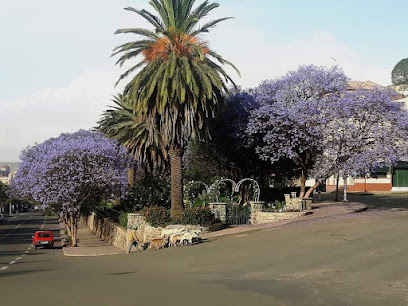
Ghirmay Tesfamariam
Explore Ghirmay Tesfamariam in Serejeka, Eritrea—a captivating tourist attraction rich in culture, history, and breathtaking landscapes.
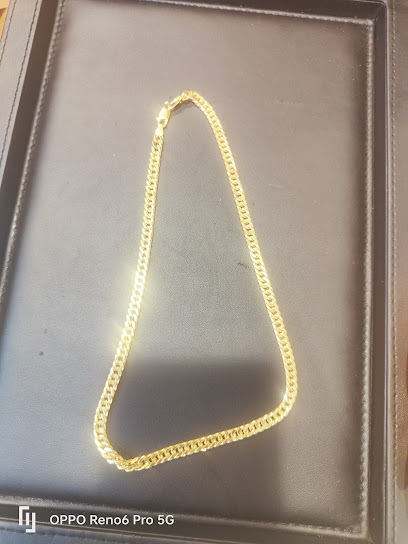
ሎቕሎቒ
Explore the serene beauty of Asmara's park, an oasis of tranquility in Eritrea's vibrant capital, perfect for relaxation and local cultural experiences.

Lake Baccaro
Experience the tranquil beauty of Lake Baccaro, a serene lakeside retreat in Asmara, perfect for nature lovers and relaxation seekers.

Adi-Sheka Dam
Explore Adi-Sheka Dam in Eritrea, a serene oasis of stunning landscapes, perfect for relaxation, photography, and nature walks.

Goduf abi
Experience the serene beauty of Goduf Abi Park in Asmara, Eritrea - a perfect retreat for relaxation and cultural immersion amidst nature.

ዲጋ ዓዲጓዕዳድ
Discover the serene beauty of Adi-Guadad Gardens in Eritrea, a tranquil escape filled with lush greenery and vibrant flora for nature lovers and explorers.

Tsetserat
Tsetserat Park: A peaceful green retreat in the heart of Asmara, where nature meets tranquility and culture.

Essential places to dine
Ghibabo Restaurant And Pizzeria
Experience authentic Eritrean flavors and delicious pizzas at Ghibabo Restaurant And Pizzeria in Asmara - a culinary gem not to be missed!
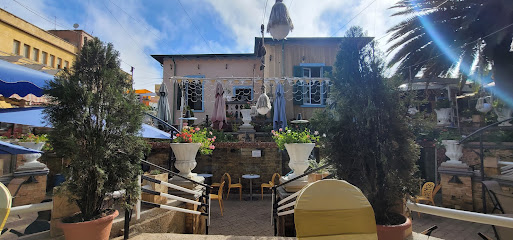
Spaghetti And Pizza House
Experience authentic Italian cuisine at Spaghetti And Pizza House in Asmara – where every meal is crafted with passion and tradition.

Golden Fork Fast Food
Experience authentic Eritrean cuisine at Golden Fork Fast Food in Asmara – where every bite tells a story.

Al Sicomoro Restaurant
Discover the authentic flavors of Italy at Al Sicomoro Restaurant in Asmara - where every dish tells a story.

The Roof Garden
Experience exquisite dining with breathtaking views at The Roof Garden in Asmara, where culinary delight meets scenic beauty.

Casa degli Italiani Restaurant
Experience the essence of Italy in Asmara at Casa degli Italiani Restaurant – where authentic flavors meet warm hospitality.

Arobana Restaurant
Discover authentic Eritrean flavors at Arobana Restaurant in Asmara - where tradition meets taste in every dish.

Alba Bistro Restaurant
Experience authentic Eritrean flavors at Alba Bistro Restaurant in Asmara – where fast food meets local cuisine in a vibrant atmosphere.
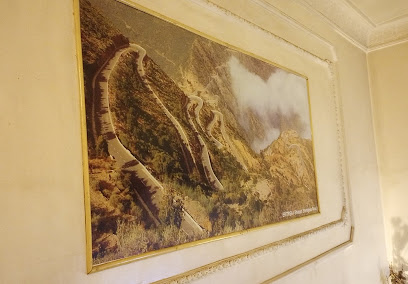
Bar Zilli
Experience authentic Eritrean flavors at Bar Zilli, where grill meets vibrant bar culture in the heart of Asmara.

Admas Restaurant & Bar
Experience the best of Eritrean cuisine at Admas Restaurant & Bar in Asmara - where flavor meets tradition amidst breathtaking views.

China Star Restaurant
Discover authentic Chinese cuisine at China Star Restaurant in Asmara - where every dish tells a story of flavor and tradition.
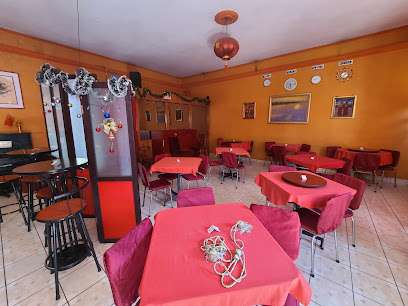
Dankin Family Restaurant
Discover authentic pizza flavors at Dankin Family Restaurant in Asmara – where every bite tells a story of culinary passion.

Nice Bar and Restaurant
Experience fast food bliss at Nice Bar and Restaurant in Asmara – where local flavors meet casual dining!

Ararat Pizza & Grill
Experience the flavors of Eritrea at Ararat Pizza & Grill, where delicious pizzas meet expertly grilled dishes in an inviting atmosphere.
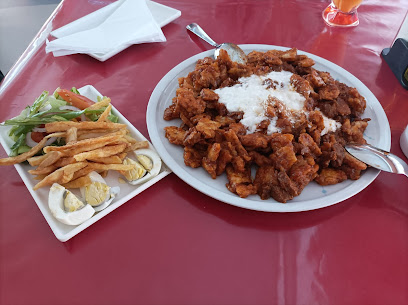
Dream Park
Discover the flavors of Eritrea at Dream Park in Asmara - where culinary delights meet cultural experiences.
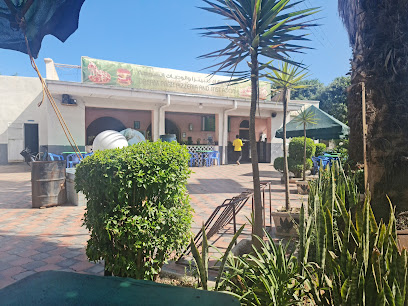
Markets, malls and hidden boutiques
Dolce Vita
Discover Dolce Vita in Asmara, where rich coffee and exquisite pastries create a delightful culinary experience.

Kahawta
Experience the vibrant culture of Eritrea at Kahawta, Asmara's premier destination for unique crafts and local delicacies.

Wikianos Supermarket
Explore the diverse offerings at Wikianos Supermarket in Asmara, where local flavors and international goods meet in a vibrant shopping experience.

Senay Supermarket
Explore local flavors and products at Senay Supermarket, a vibrant shopping destination in the heart of Asmara, Eritrea.

Tesfamariam Super Market
Explore the vibrant flavors and local culture at Tesfamariam Super Market in Asmara, Eritrea, a must-visit for every traveler.

ayrure mini market
Explore Ayrure Mini Market in Asmara for a taste of local life, fresh produce, and authentic Eritrean snacks.
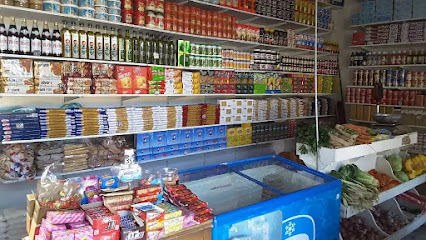
Dahlak Bicycle Shop
Discover Eritrea's beauty on two wheels at Dahlak Bicycle Shop in Asmara, your go-to destination for bicycles and cycling adventures.

ሙሳ ቀመማ ቀመም
Experience the vibrant flavors of Eritrea at ሙሳ ቀመማ ቀመም, a spice store in Asmara showcasing local culinary treasures.

Zara Boutique
Explore Zara Boutique in Asmara for unique clothing that blends modern style with traditional Eritrean fashion, all in a welcoming atmosphere.

Every Thing For The House
Explore a diverse range of home goods and unique Eritrean crafts at 'Every Thing For The House' in Asmara, perfect for souvenirs and everyday essentials.

Day-To-Day-Discount
Explore Eritrean culture at Day-To-Day Discount, the local grocery store in Asmara offering fresh produce and traditional delicacies.

MENDER BOUTIQUE
Explore Mender Boutique in Asmara for stylish men's fashion blending local culture and contemporary trends in a welcoming environment.
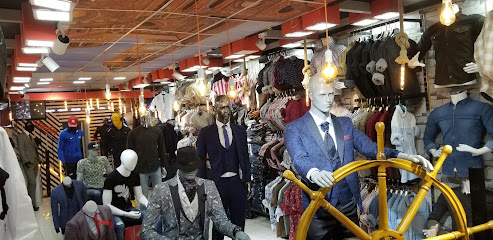
Shop enda kunbilachew
Explore the heart of Asmara's culture at Shop enda kunbilachew, where unique local treasures await every traveler.

Edaga laka - ዕዳጋ ላኻ
Explore Edaga Laka in Asmara: a vibrant scrapbooking store where creativity meets Eritrean culture through unique crafting supplies and workshops.
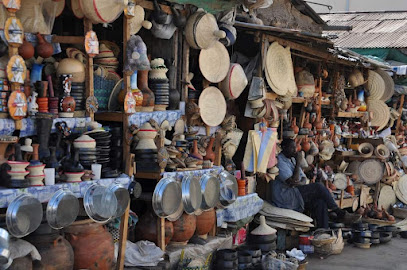
Weldeghiorghis Bahta Shoe Shop
Explore authentic Eritrean craftsmanship at Weldeghiorghis Bahta Shoe Shop in Asmara, where tradition meets style in every handcrafted shoe.

Essential bars & hidden hideouts
Bar Jima
Experience the vibrant nightlife of Asmara at Bar Jima, where local culture meets delightful drinks in a cozy atmosphere.

Bar Zilli
Experience the vibrant flavors and unique atmosphere of Bar Zilli, a premier grill and bar in Asmara, Eritrea, where culinary delights await every visitor.

Goitom's Bar and Restaurant
Experience the vibrant nightlife and authentic Eritrean cuisine at Goitom's Bar and Restaurant in Asmara.

በኒቶ ፒዛ ቤት Pizzeria zio benito
Experience the best of Italian cuisine at Pizzeria Zio Benito in Asmara, where delicious wood-fired pizzas meet vibrant local culture.

Bar Zara
Experience the vibrant nightlife at Bar Zara in Asmara, Eritrea – a perfect blend of local flavors and lively atmosphere.

Bar Torino
Experience the vibrant culture and welcoming atmosphere at Bar Torino in Asmara, where delightful drinks meet Eritrean hospitality.

Bar Lodi
Discover the vibrant atmosphere of Bar Lodi in Asmara, where local flavors meet international drinks in a cozy setting.

Bar Hagerey
Discover the vibrant nightlife of Asmara at Bar Hagerey, a lively bar offering a taste of local culture and refreshing drinks.

Enda Fenili
Discover the vibrant nightlife of Asmara at Enda Fenili, where local culture meets an inviting atmosphere for an unforgettable experience.

Bar KitKat
Discover the lively spirit of Asmara at Bar KitKat, a cultural hotspot offering drinks and a vibrant atmosphere in Eritrea.

Sembel Bar - ባር ሰምበል
Experience the vibrant nightlife at Sembel Bar in Asmara, Eritrea, where local flavors and culture come together in a lively atmosphere.

bar hadas (ባር ሓዳስ)
Experience the lively atmosphere of Bar Hadas in Asmara, where local culture meets refreshing drinks in a vibrant setting.

Bar Gebray ባር ገብራይ
Discover the vibrant atmosphere of Bar Gebray in Asmara, where local drinks and lively music create an unforgettable Eritrean experience.

Gazziela - ጋዜላ
Experience the vibrant nightlife of Asmara at Gazziela, where local culture meets a lively bar atmosphere.

Local Phrases
-
- Helloሰላም
[sälam] - Goodbyeደሓን ሰላም
[dahna sälam] - Yesእወ
[eweh] - Noእዚ
[ezi] - Please/You're welcomeእንቋን እንዴብሳ
[enkan endebesa] - Thank youኣመሰልካ
[ameselka] - Excuse me/Sorryሓጎስ እንድሕወን
[hagos endhawen] - How are you?እንቋን ደሓን ነዚ ሓይሊ?
[enkan dahna nzi haili?] - Fine. And you?ይሓይስ ኣንደ እንቋን?
[yihays ande enkan?] - Do you speak English?እንቋን ኢንግሊስ ናብዚ?
[enkan English nabzi?] - I don't understandእንቋን ኣለኹ
[enkan aleku]
- Helloሰላም
-
- I'd like to see the menu, pleaseመንገዲ ሓበሬታ ይህሉ
[mangadi habereta yihlu] - I don't eat meatኣብ ምሕረት ኣልተኸል
[ab mihret altekel] - Cheers!ሰሎም!
[selom] - I would like to pay, pleaseይህሉ ኣምሓሩ
[yihlu amharu]
- I'd like to see the menu, pleaseመንገዲ ሓበሬታ ይህሉ
-
- Help!እንቋን!
[enkan!] - Go away!ኣብዚ!
[abzi!] - Call the Police!ናይ ፖሊስ ግዛ!
[nay police gaz!] - Call a doctor!ናይ ሜዳይ ግዛ!
[nay meday gaz!] - I'm lostኣብዚ ምኽንያት
[abzi m'knyat] - I'm illኣብዚ ሓለፈ
[abzi halefe]
- Help!እንቋን!
-
- I'd like to buy...ይህሉ ምምሕዳር
[yihlu m'mehdar] - I'm just lookingእዚ ሓገዝ እዩ
[ezi hagiz eyu] - How much is it?እቶም ኣብዚ?
[etom abzi?] - That's too expensiveኣህዋረ ኣብዚ
[ahware abzi] - Can you lower the price?ኣታኸላለሉ ኣብዚ?
[atakelalu abzi?]
- I'd like to buy...ይህሉ ምምሕዳር
-
- What time is it?ኣብ ሰዓት ኣዳሪኽ?
[ab saat adarik?] - It's one o'clockዘሎ ኣእምሮ
[zelo aemro] - Half past (10)ዘሎ ኣዋሕ ፲፻
[zelo awah 10:30] - Morningኣህዋሂ
[ahwahi] - Afternoonኣምሓሪ
[amhari] - Eveningሓበሬ
[haber] - Yesterdayትኽዕ
[tik'e] - Todayዚምረ
[zimre] - Tomorrowናይዚ
[nayzi] - 1ኣነ
[an] - 2ሽማሕ
[shimah] - 3ሽማሕዕ
[shimahay] - 4ርእሳ
[res'a] - 5ምስማሕ
[msimah] - 6ምስማሕዕ
[msimahay] - 7ሰብዓ
[seba] - 8ሽምሕ
[shimh] - 9ትማሕ
[tmah] - 10፲
[ah]
- What time is it?ኣብ ሰዓት ኣዳሪኽ?
-
- Where's a/the...?ኣብ ኣሜሪካ ምንጭብ?
[ab amerekha m'enchib?] - What's the address?ናይ አስርሓም ምንጭብ?
[nay asraham m'enchib?] - Can you show me (on the map)?ኣታኸላለሉ ኣምሓራብን?
[atakelalu amharabn?] - When's the next (bus)?ኣብዚ ቅልው ኣሜሪካ?
[abzi k'luw amerekha?] - A ticket (to ....)ትክክል (እንጭ ....)
[tkk'l (enchib ....)]
- Where's a/the...?ኣብ ኣሜሪካ ምንጭብ?
History of Asmara
-
Asmara, the capital city of Eritrea, has roots that trace back to the 12th century when four clans joined forces to live together in harmony. The name 'Asmara' means 'they made them unite' in the Tigrinya language, reflecting this historic union. The early settlement was primarily agrarian, with people living off the fertile lands and exchanging goods through barter trade.
-
In the late 19th century, Asmara became a focal point of Italian colonial ambitions. By 1889, the city was officially declared a colony of Italy. The Italians invested heavily in the city's infrastructure, constructing roads, buildings, and amenities that still stand today. This period marked the transformation of Asmara into a modern urban center, with the introduction of European architectural styles and construction techniques.
-
Asmara is often referred to as 'La Piccola Roma' or 'Little Rome' due to its remarkable collection of Art Deco and Modernist buildings. During the 1930s, Italian architects designed and constructed a plethora of structures that have since become iconic. Notable examples include the Fiat Tagliero Building, an automobile service station designed to resemble an airplane, and the Asmara Opera House, showcasing neoclassical design. These buildings have earned the city a UNESCO World Heritage status, recognizing its unique urban landscape.
-
Following Italy's defeat in World War II, Asmara came under British administration from 1941 to 1952. During this period, the city served as a strategic military base, and the British made various administrative and infrastructural adjustments. However, the city's growth was somewhat stunted due to the geopolitical uncertainties surrounding Eritrea's future.
-
In 1952, Asmara became the capital of the Eritrean Autonomous Region within the Federation of Ethiopia and Eritrea. This union was marked by political tension and unrest, as many Eritreans opposed Ethiopian dominance. The situation deteriorated further when Ethiopia annexed Eritrea in 1962, abolishing its autonomous status and igniting the Eritrean War of Independence.
-
The Eritrean War of Independence, which lasted from 1961 to 1991, had a profound impact on Asmara. The city served as a strategic and logistical hub for both the Eritrean Liberation Front and, later, the Eritrean People's Liberation Front. Despite the conflict, Asmara's infrastructure remained relatively intact, and the city became a symbol of resistance and resilience.
-
Eritrea gained its independence in 1993, and Asmara was declared the capital of the newly formed nation. Since then, the city has undergone various phases of reconstruction and development. Efforts have been made to preserve its unique architectural heritage while modernizing its infrastructure. Asmara today stands as a testament to the country's rich history and cultural diversity.
Asmara Essentials
-
Asmara International Airport (ASM) is the main gateway to the city, with flights connecting from major hubs such as Cairo, Istanbul, and Dubai. Several airlines, including Eritrean Airlines, EgyptAir, and Turkish Airlines, operate routes to Asmara. Once you arrive at the airport, you can take a taxi to the city center, which is approximately a 10-minute drive away.
-
Asmara is a compact city, making it easy to explore on foot. For longer distances, taxis are readily available and affordable. Public buses and minibuses (known as 'Zabti') operate on fixed routes and are a cost-effective way to get around. Car rentals are also available, but driving can be challenging due to local road conditions and traffic rules.
-
The official currency in Eritrea is the Nakfa (ERN). Credit cards are not widely accepted, so it is advisable to carry cash. ATMs are scarce, and it can be difficult to withdraw money using foreign cards. It is recommended to exchange currency at official exchange offices or banks upon arrival. Keep small denominations handy for everyday transactions.
-
Asmara is generally considered safe for tourists. However, like any city, it's important to stay vigilant. Avoid walking alone at night, especially in poorly lit or unfamiliar areas. Petty crimes such as pickpocketing can occur, so keep an eye on your belongings in crowded places. The neighborhoods of Sembel and Gejeret are known to have higher crime rates targeting tourists.
-
In case of emergency, dial 113 for police assistance and 114 for medical emergencies. The Orotta National Referral Hospital is the main medical facility in Asmara. It is advisable to have comprehensive travel insurance that covers medical emergencies. For minor health issues, there are pharmacies throughout the city where you can purchase over-the-counter medications.
-
Fashion: Do dress modestly. Avoid wearing revealing clothing, especially in religious and conservative areas. Religion: Do respect local customs and traditions. Always remove your shoes when entering mosques and cover your head if required. Public Transport: Do be respectful and considerate. Avoid eating and drinking on public transport. Greetings: Do greet people with a handshake. Using the right hand is considered respectful. Eating & Drinking: Do try local delicacies and accept food offerings graciously. Don't refuse hospitality, as it is considered impolite.
-
To experience Asmara like a local, visit the local markets such as the Medebar Market for a taste of everyday life. Engage with locals, who are often friendly and eager to share stories about their city. Don't miss out on the Italian-era architecture, including the Fiat Tagliero Building and the Asmara Opera House. For a unique experience, take a stroll along Harnet Avenue and enjoy a coffee at one of the many traditional cafes.
Trending Landmark in Asmara
-
Asmara Palace Hotel
-
Fiat Tagliero ፡ፍያት ታሌሮ
-
ኣስመራ ካቴድራል | Cathedral Our Lady of the Rosary
-
Khulafa al-Rashidun Mosque - ጃምዕ ኹለፋእ ኣልራሺዲን
-
ሲነማ ኢምፔሮ | Cinema Impero
-
Asmara International Airport
-
National Museum of Eritrea
-
Asmera
-
Eritrea Visit
-
Mai jah jah
-
Bar Zilli
-
Asmara Synagogue
-
Tank Graveyard
-
Adulis Travel
-
Kidane Mihret Catholic Church
Nearby Cities to Asmara
-
Things To Do in Dekemhare
-
Things To Do in Mendefera
-
Things To Do in Adi Keyh
-
Things To Do in Keren
-
Things To Do in Adi Quala
-
Things To Do in Axum
-
Things To Do in Mekele
-
Things To Do in Teseney
-
Things To Do in Gondar
-
Things To Do in Lalibela
-
Things To Do in Jizan
-
Things To Do in Bahir Dar
-
Things To Do in Abha
-
Things To Do in Khamis Mushait
-
Things To Do in Sana'a












